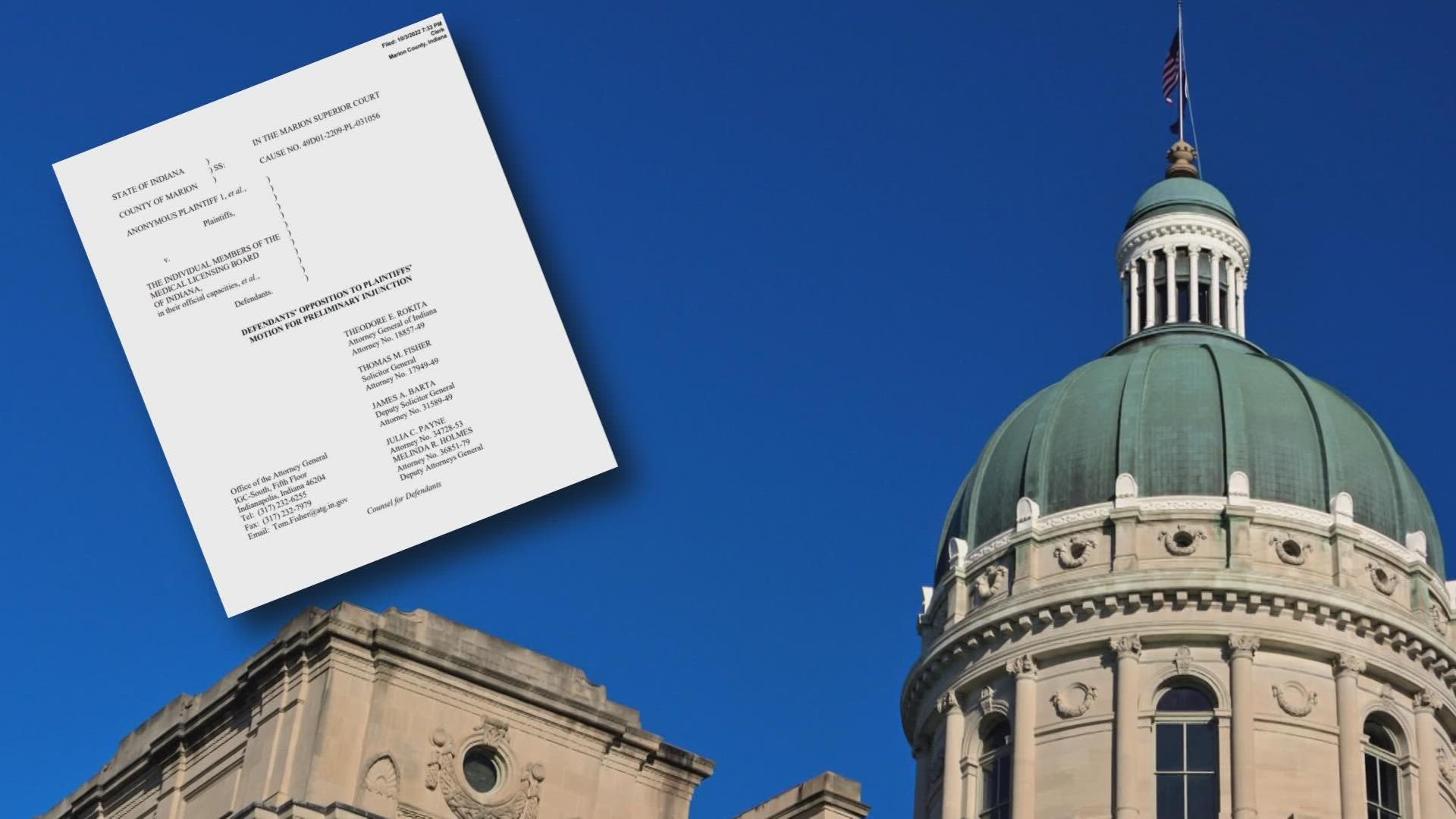INDIANAPOLIS — The state of Indiana argued women filing a religious freedom claim against the new abortion law do not have standing because they’re not pregnant.
Lawyers with the attorney general’s office wrote, “preserving human lives outweighs speculative concerns about hypothetical future pregnancies and modest alteration of Plaintiffs’ current sexual and contraceptive practices.”
“My thoughts upon reading the response were that it was very complicated,” said Indiana University law professor Jody Madeira. “Very emotional — in ways that I would not expect of a legal filing — and very fraught with a lot of missed points and misunderstandings.”
The plaintiffs in this case are women of different faiths. They argue the abortion ban violates their beliefs, which allow abortion in some circumstances. The women also say the law's stance that life begins at fertilization differs from their religious beliefs.
The state wrote, “In the State’s view, its compelling interest in saving prenatal life always justifies applying S.B. 1’s general prohibition on abortion to religious claimants.”
The 48-page response also argued there’s a “lack of clarity” in the lawsuit. Arguing the women’s rights weren’t violated because they were not currently pregnant and the plaintiffs, "feelings of anxiety and changes to contraceptive and sexual practices — do not amount to substantial burdens on religious exercise.”
Indiana University law professor Jennifer Drobac also reviewed the response and concluded, along with Madeira that the state, at times, seemed to ignore the women’s religious concerns.
“And moreover, they’re ignoring the plaintiffs because they're focusing on the right of unborn babies,” Drobac said.
Madeira tells 13News, in her opinion, the state at times conflated religious and scientific arguments. For example, asserting that life begins at fertilization and referring to the unborn as “innocent.”
“You know, science doesn't tell us whether life is innocent,” Madeira said. “And they're already characterizing this life as innocent, whereas some Christian doctrines teach that humanity is inherently sinful, and that everyone born after Adam’s sin, after Eve’s sin needs the redemption of Jesus Christ.”
Both professors are interested to see how a judge responds to the state’s arguments during a preliminary injunction hearing scheduled for Friday, Oct. 14 at 9 a.m.
Another argument from the state is that plaintiffs don’t need a preliminary injunction, because the law is already not being enforced. A different judge paused the law after hearing the ACLU’s argument that the law is unconstitutional.
RELATED: Read the full response
The law professors say that’s just one small success and the ACLU may be fighting for another injunction to cover their bases.
“I think if there is another grounds on which an injunction could be obtained, then that would make SB1 weaker than it already is,” Madeira said. “That would say there’s not just issues of a privacy right existing under the Indiana Constitution ... and so the law violates bodily autonomy for Hoosier women and girls. But this also says that there's a further harm for a certain subclass of individuals, Jewish individuals, Muslim individuals, individuals who believe that your fertilization does not begin the start of life.”
The attorneys also say the current pause is not permanent. The state has already filed an appeal asking a higher court to allow the abortion law to be enforced.
“I think these plaintiffs, the ACLU would rather see two walls between them, and SB1 instead of just one wall,” Madeira said.

